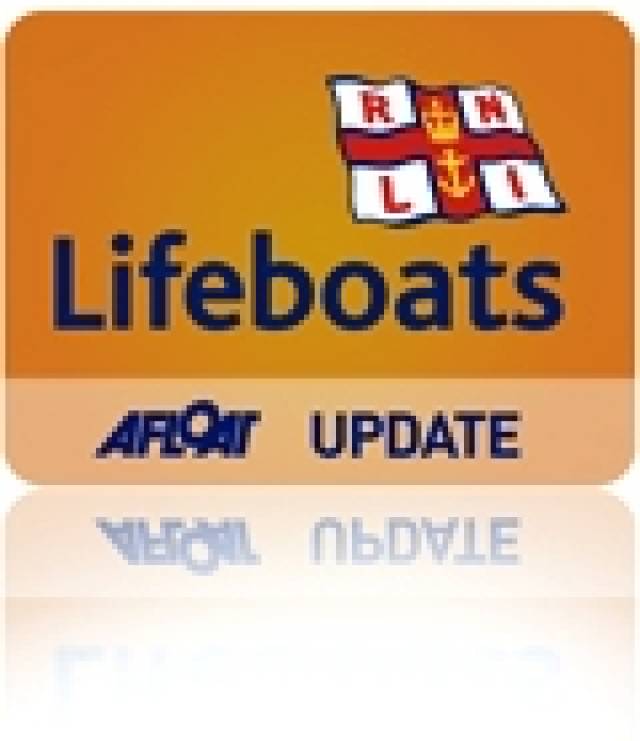Two incredible Limerick men who have both battled cancer have presented the RNLI and two cancer charities with a cheque for €8,255 each after they successfully sailed round Ireland. The two friends Chris Egan and Dave Bevan from Foynes Yacht Club in Limerick decided to take on the daunting challenge when Chris, who had battled cancer, approached his friend Dave, who had huge maritime experience, with the idea of doing a 'Round Ireland Sail'. The attempt became all the more poignant when Dave himself developed cancer a short time later.
The men were joined on the voyage by a former Kilmore Quay RNLI lifeboat crewmember, Gerry Hutton and members of Foynes Yacht club. Between them they successfully completed the challenge, arriving home two months after they set off on the May Bank Holiday weekend. The men and their supporters were raising funds for three charities close to their heart; the RNLI, the Mid-Western Cancer Foundation and the Irish Cancer Society.
The group only took only two short breaks during the attempt. The first was after they reached the Aran Islands off Galway and hit a patch of bad weather; the RNLI lifeboat crew based on Inis Mhór kept an eye on their boat while they went home to wait out the weather before returning to resume their journey. The second was in Cahersiveen, County Kerry to attend family events.
According to the men one of the bonuses of the trip was that it brought them to many of the locations around the coast where the RNLI has lifeboat stations. Dave Bevan also managed to receive his final chemotherapy treatment while on the trip, pulling into Cork and visiting the hospital.
Commenting on their incredible voyage Chris Egan said, "I am delighted we were successful in our round Ireland sail and that we managed to raise nearly €25,000 for three important charities. I class myself as a Mickey Mouse Sunday Sailor and it is a world away from my day job as a postman but it has been one of the greatest experiences of my life. The warm welcome we received around the coast, especially when we reached RNLI lifeboat stations, was tremendous.
I also can't thank enough all the generous people who sponsored us and raised funds, from a bag pack to a raffle, people really dug deep for charity. I've already put the RNLI on notice that we'd love to do it again, but this time going anti-clockwise. You never know.'
Receiving the cheque on behalf of the RNLI at Foynes Yacht club was Beverley Callendar, a volunteer souvenir secretary with the charity. Beverley had kept in touch with the sailors and helped where she could with introductions to RNLI volunteers on the coast. Beverley added, 'I have huge admiration for Chris and Dave. The fact that after battling serious illness they would then turn their thoughts to raising money for charity is incredible. The funds they raised will help Irish volunteer lifeboat crewmembers in their work saving lives at sea both in training and through their equipment. On behalf of the RNLI I would like to personally thank Chris and Dave for their generosity.'
Anyone interested in learning more about the trip can look at photographs from Chris and Dave's adventures on their Facebook page: Sail Against Cancer Ireland.
































































